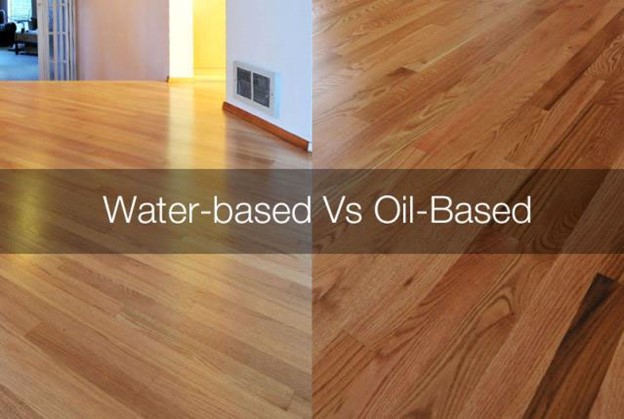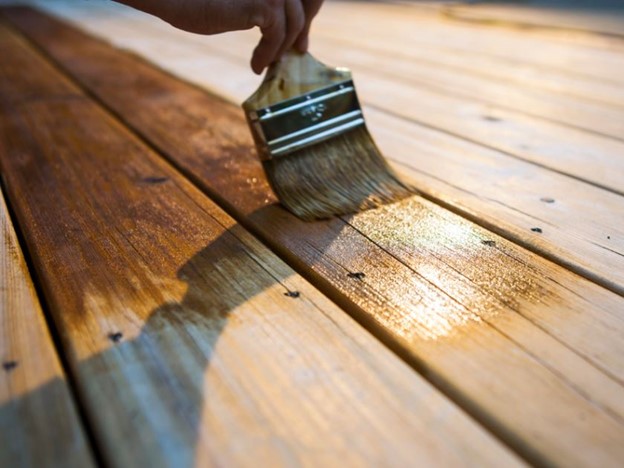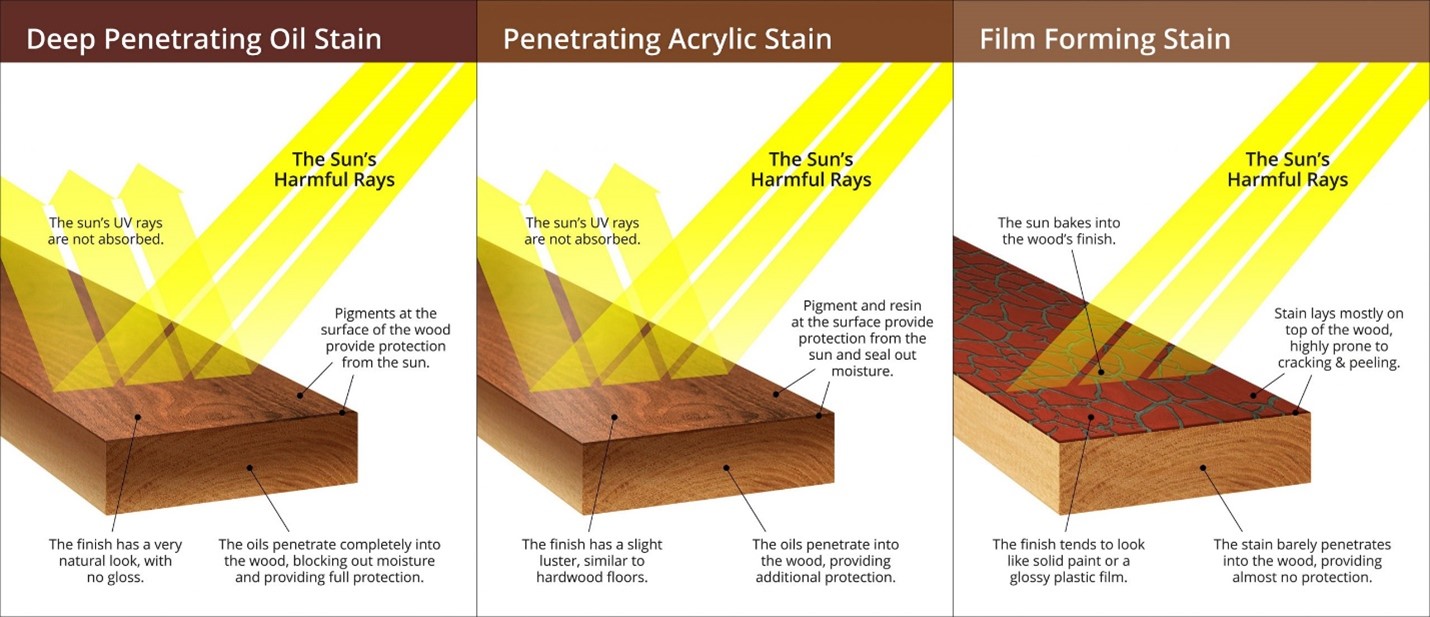
As a professional hardwood flooring company in Hudson Valley, Newburgh and Poughkeepsie, NY. Wayne Maher Flooring (845) 420 5488 our 1 choice for polyurethane is the water based Bona Traffic line. Applying polyurethane to hardwood wood floors is essential for protection against scuffs, scratches, dents, and moisture. There are two main types of polyurethane: oil based and water based. When choosing between oil based and water based polyurethane finishes, it’s important to consider the specific needs and characteristics of your project. Here are some of the key differences between the two:
How do they compare, and which is best for your needs?
Key Considerations:
1. Color Change: Oil based polyurethane tends to give wood a warmer, amber hue, whereas water based polyurethane maintains the natural color of the wood.
2. Odor and Ventilation: Oil based polyurethane has a stronger odor and requires good ventilation and a vacant space for application, usually for several days.
Durability Comparison:
The debate over the durability of water based versus oil based polyurethane is ongoing. Traditionally, oil based polyurethane was seen as more durable, but advancements in water based formulations have changed the game. Today’s high quality water based polyurethanes, like Bona Traffic, are considered just as durable as their oil based counterparts.
Longevity:
Oil Based Polyurethane: Typically lasts around 10 years.
Water Based Polyurethane: When high quality products are used and applied by professionals, they can match the 10 year lifespan of oil based options.
Quality Matters:
The durability of polyurethane products depends significantly on the amount of polyurethane in the product. Higher quality products contain more polyurethane, contributing to better longevity and durability. Budget friendly water based options may not offer the same durability and lifespan as premium ones.
Quick Summary:
Color: Oil based (amber tint) vs. Water based (clear)
Odor/Ventilation: Oil based (strong odor, requires vacated space) vs. Water based (low odor)
Durability: High quality products from both categories offer similar durability.
Choosing between oil based and water based polyurethane ultimately hinges on your preference for color, ability to manage ventilation and odor, and budget for high quality formulations.
Water Based vs. Oil Based Polyurethane: A Comprehensive Comparison

Choosing between water based and oil based polyurethane for your hardwood floors can be daunting. Both offer protection, but they have distinct characteristics that impact the final look, application process, and overall experience. Let’s break down the key differences to help you make an informed decision.
Cost:
- Product: Water based polyurethane is generally more expensive than oil based.
- Labor: While water based may have a higher upfront cost, its faster drying time can reduce labor costs, making the overall price comparable to oil based.
Drying Time and Odor:
- Water Based: Dries quickly, allowing for multiple coats in a day. Low odor, making it suitable for occupied spaces.
- Oil Based: Longer drying time, requiring multiple days for application and curing. Strong odor, necessitating ventilation and potential evacuation.
Color Impact:
- Water Based: Preserves the wood’s natural color with a clear finish.
- Oil Based: Adds an amber tone to the wood, darkening its appearance over time.
Application:
- Water Based: Requires professional application due to fast drying time and potential for mistakes.
- Oil Based: Easier to apply for DIY projects due to longer drying time, allowing for corrections.
Durability:
- Water Based: Offers excellent durability with proper application and maintenance.
- Oil Based: Provides good durability but may be softer and more prone to scratches.
Environmental Impact:
- Water Based: Low VOCs, making it a more environmentally friendly choice.
- Oil Based: High VOCs, contributing to indoor air pollution.
Summary Table:
| Feature | Water Based | Oil Based |
| Cost | Higher product cost, comparable labor cost | Lower product cost |
| Drying Time | Fast | Slow |
| Odor | Low | High |
| Color Impact | Clear finish | Adds amber tone |
| Application | Professional recommended | Easier DIY |
| Durability | Excellent | Good |
| Environment | Low VOCs | High VOCs |
Export to Sheets
Which is Right for You?
The best choice depends on your specific needs and preferences. Consider the following factors:
- Budget: Factor in both product and labor costs.
- Time: Assess how long you can tolerate strong odors and disruptions.
- Desired Look: Determine if you prefer the wood’s natural color or a warmer tone.
- DIY or Professional: Evaluate your skills and comfort level with application.
- Environment: Consider the impact on indoor air quality.
Ultimately, both water based and oil based polyurethane can produce beautiful results when applied correctly. By understanding their key differences, you can make an informed decision that best suits your home and lifestyle.
Oil Based vs. Water Based Polyurethane: Which is Best for Wood Floors? FAQ

What is the difference between oil based and water based polyurethane?
Both oil based and water based polyurethane finishes are used to protect hardwood floors.
The primary difference lies in their composition. Oil based polyurethane is solvent based, while water based is, as the name suggests, water based. This difference significantly impacts their drying time, odor, appearance, and application.
Which is more durable, oil based or water based polyurethane?
Traditionally, oil based polyurethane was considered more durable. However, advancements in water based technology have made them equally durable, if not more so, in many cases. High quality water based polyurethane can offer excellent resistance to wear, scratches, and dents.
Does polyurethane change the color of wood?
Yes, polyurethane can affect the color of wood. Oil based polyurethane tends to darken the wood over time, adding an amber hue. Water based polyurethane generally preserves the wood’s natural color, providing a clearer finish. As a professional hardwood flooring company in Hudson Valley, Newburgh and Poughkeepsie, NY. Our 1 choice for polyurethane is the water based Bona Traffic line.
Which type of polyurethane has a stronger odor?
Oil based polyurethane has a much stronger odor than water based. Water based polyurethane is considered low VOC (volatile organic compounds) and has a minimal odor.
How long does it take for each type of polyurethane to dry?
Oil based polyurethane has a longer drying time, typically requiring 24 hours between coats. Water based polyurethane dries much faster, often allowing for multiple coats in a single day.
Is it easier to apply oil based or water based polyurethane?
Oil based polyurethane is generally easier to apply for DIY projects due to its longer drying time, which allows for corrections. Water based polyurethane requires more skill and precision due to its fast drying time.
Which type of polyurethane is better for light colored wood?
Water based polyurethane is generally preferred for light colored wood because it preserves the wood’s natural color. Oil based polyurethane can darken light woods, creating an undesirable yellow or amber tint.
Can I apply water based polyurethane over oil based polyurethane?
No, it’s not recommended to apply water based polyurethane over oil based. The two are incompatible and can cause adhesion problems.
Can I apply oil based polyurethane over water based polyurethane?
While it’s technically possible to apply oil based over water based, it’s not recommended. The oil based finish may not adhere properly, leading to peeling or bubbling.
Which type of polyurethane is better for high traffic areas?
Both oil based and water based polyurethane can be suitable for high traffic areas when applied correctly and maintained properly. High quality water based polyurethane, especially those designed for high traffic areas, can offer excellent durability.
Is one type of polyurethane more expensive than the other?
Water based polyurethane is generally more expensive than oil based polyurethane. However, the overall cost can vary depending on factors such as the brand, quality, and the number of coats required.
Ultimately, the best choice between oil based and water based polyurethane depends on your specific needs and preferences. Consider factors such as desired color, drying time, odor, application difficulty, and budget when making your decision.




